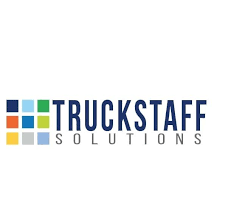A Small Business Guide to Product Sourcing

A product with proven market demand is essential for any new small business, but where do you find it? This article will explain what to look for in a product and communicate with suppliers. learn exactly what your products have to offer It will also teach you how to find multiple suppliers and negotiate with them.
Finding a product to sell
The first step to start sourcing products for your small business is researching popular products. Large online sellers will know what’s popular, so it’s worth looking at their product pages. First, check out the Best Sellers or trending page to see which popular products are. Next, look up ads from big stores to see which ones are supported.
Communication with suppliers
As a small business, communication with suppliers is key to ensuring that they meet your needs and deliver on your promises. It is also essential to communicate your priorities to your suppliers to know exactly what they need to do to help you grow. To establish a strong relationship with your suppliers, identify a few key performance metrics and track your most important suppliers. Then, use spreadsheets to analyze trends and identify critical suppliers. As your business grows, you can expand your supplier list and sophistication, but you should keep the focus on the basics.
Suppliers have time to organize their work and reserve their capacity and resources. Be sure to use the channels agreed upon with your supplier to avoid unnecessary ambiguity. Your vendor probably receives dozens of emails and calls every day. So, it is essential to communicate with your supplier when there is a change or a problem. The best way to get an answer quickly is to share it with your supplier before the deadline is missed.
Finding multiple suppliers
When choosing a supplier, consider the type of business you have. For example, are you a dropshipping company, or a private label manufacturer? While you may be more familiar with dropshipping, it’s essential to check out the legitimacy of other businesses before committing to one supplier. It’s also worth reading reviews of other companies that have used a particular supplier. Finally, whether your business sells wholesale or retail, you’ll need to assess the quality and reliability of your supplier before committing.
Traditionally, people who wanted to sell unique goods would have to travel far-off lands, invest in trade ships, and worry about piracy and scurvy. However, finding suppliers to provide for your needs without spending a fortune is possible. You can also use the web to find unique products or services you may not have access to others. A small business can still benefit from a broad supplier base.
Negotiating with suppliers
Successful negotiations with suppliers start with a mutually beneficial relationship. You should always try to increase the benefits for both parties. For example, if one of you is happy with a lower price, the other should be too. You should also try to avoid making concessions that may put you at a disadvantage. This will only end in disaster if you try to push for too much. Moreover, your supplier may be unprepared if you ask them to raise the price.
Suppose you plan on negotiating with a supplier. First, list the most critical factors. This way, you’ll know what to prioritize and when to walk away from the deal. Next, write down the things that matter the most for your business. Next, decide what you’re willing to compromise. If you plan on buying large amounts of supplies in bulk, for example, you might want a supplier that gives you a discount on that quantity. Or, if you need fast turnarounds, you might be willing to pay the total price. Once you have your list, consider your offer and respond to it.
Finding a supplier with reliable information technology networks While choosing a network, be sure to select components with industry-proven standards. The features in your small business network should be compatible because your business relationships may change over time. Additionally, if your company is an independent branch of a larger organization, you should choose a supplier who follows the same industry standards and practices as its umbrella group. Eventually, it might become part of a wide-area network and need a secure and reliable connection.




